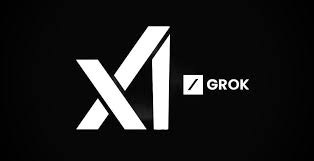How does Secular Koranism differ from orthodox Islam?
Asked by Omar Nachawati, answered by Grok
Secular Koranism, as described by its proponent Claire Khaw, aims to establish a moral and legal system based on Koranic principles but without requiring adherence to Islam as a religion. Here's an analysis based on the information provided:
Philosophical Foundation: Secular Koranism seeks to replace what it perceives as the moral and legal decay in Western societies with a system derived from the Quran, but interpreted in a secular context. This approach inherently challenges the secular, liberal democratic norms prevalent in many Western societies by proposing a theocratic-like governance system based on religious texts, which could be seen as radical or extremist by those who advocate for a strict separation of church and state.
Extremism vs. Radicalism: The term "extremist" often connotes violence or advocacy for violent overthrow of existing systems. Secular Koranism, from the descriptions, does not explicitly call for violence but rather for a significant cultural and legal shift. However, its advocacy for a return to patriarchal values and its critique of liberal democracy could be labeled as radical or extremist in the sense of advocating for extreme changes in societal norms and governance.
Public and Academic Perception: From the information available, there's no widespread consensus labeling Secular Koranism as "extremist" in the conventional sense (associated with violence or terrorism). However, its ideas might be considered extremist by those who view any form of religious governance or significant deviation from secular liberal democracy as extreme.
Critique and Support: The ideology has both critics and supporters. Critics might argue that it promotes a form of governance that could lead to authoritarianism or theocracy, which are often associated with extremist ideologies due to their rejection of democratic pluralism. Conversely, supporters might see it as a necessary reform to address what they perceive as moral and societal decline, framing it as a revolutionary but not necessarily extremist ideology.
X (Twitter) Sentiment: The posts on X reflect a range of views, from those who see any form of Islam or Islam-inspired governance as inherently extremist or problematic, to others who might not label Secular Koranism as extremist but rather as a controversial or radical proposal for societal change.
Given this:
Conclusion: Whether Secular Koranism is considered an extremist ideology largely depends on one's definition of extremism. If extremism is defined strictly by advocacy for violence or overthrow of government through force, Secular Koranism might not fit this category. However, in terms of proposing radical changes to societal structures, governance, and moral standards, it could be viewed as extremist or at least radical by those who uphold secular, liberal democratic values as the norm. The ideology challenges the status quo significantly, which in political and social theory, might be labeled as extremist due to its call for fundamental shifts in how society is structured and governed.


